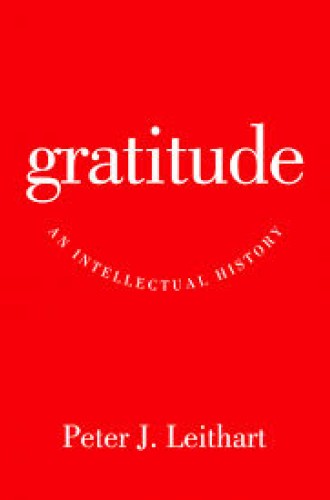Gratitude, by Peter J. Leithart
Jesus was an ingrate,” Peter Leithart writes, and he thinks we should be thankful that he was. So were the Protestant Reformers. Indeed, much of the modern world is in debt to the revolutionary power of Christian ingratitude. That, in any case, is the counterintuitive thesis of Leithart’s provocative new book. Sentimental reflections on the importance of gift giving are a common way to combat modern cynicism, but Leithart will have none of that. In fact, if the power of generosity is often thought to be one of the great heritages of Western history, Leithart’s book can be seen as one long act of ingratitude. Sometimes, Leithart seems to be saying, it is more blessed to reject than to receive.
The main characters of Leithart’s story are two geometrical elements, circles and lines. In the ancient world, Leithart argues, gifts were circulated with the expectation that they would be returned. In tribal societies, among the ancient Greeks, and in the Roman republic, generosity was a form of political power. Patrons handed out favors in order to put recipients in their debt. Gratitude had to be demonstrated in deed, not just expressed in word. Clients were expected to repay gifts with loyalty and obedience. Gifts thus created closely integrated communities, but at the price of inclusivity. Gifts were the encircling boundary that kept these social groups closed to outsiders.
The modern world threw lines like daggers into the heart of this circular way of thinking. From the perspective of the circle, gifts without strings attached are a wasted opportunity to bond people together. From the perspective of the line, however, the strings wrapping a gift are like the trappings of a spider’s web. We are so aware of the burden that gifts can place on others that we are hesitant to get ourselves trapped in other people’s needs. That is why we think that gifts should be given without any thought of return. We want our gifts to be a particular kind of line: a ray that has a beginning but keeps going without ever turning back. When linear-minded givers are thanked, they often say “It was nothing” in order to minimize the importance of their action. To insist on gratitude is to make the very basic mathematical mistake of thinking that lines can turn into circles.





